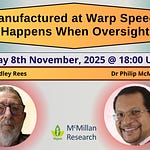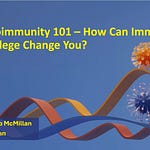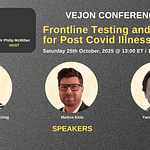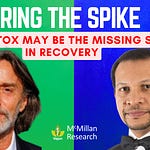I recently had the privilege of a fascinating interview with Professor Christine Stabell Benn, an expert in global health, to discuss a critical issue facing us today: the declining trust in vaccines. This isn't just about COVID-19 vaccines; it's about vaccines in general, and the implications of this loss of trust are significant. Public health relies on people believing in vaccines, and when that trust erodes, we're all at risk.
Professor Stable-Benn, whose work has taken her from low-income settings in Africa to her home country of Denmark, shared insights from her extensive research on health interventions. What struck me was how her journey into global health started with a genuine passion to reduce global mortality. Her early research in Africa focused on the interaction between vitamin A supplementation and the measles vaccine, revealing how these health interventions could interact in ways that hadn’t been considered before. This kind of research not only advanced our understanding of vaccine efficacy but also highlighted the importance of looking at the broader effects of vaccines on overall health.
During our conversation, we talked a lot about something she’s been advocating for years: the non-specific effects of vaccines. Traditionally, vaccines have been evaluated based on their ability to prevent specific diseases and their immediate side effects. But Christine’s research shows that vaccines can have broader effects on the immune system—sometimes positive, as with live vaccines like the measles vaccine, and sometimes negative, as seen with non-live vaccines like the DTP vaccine.
When we turned to the topic of COVID-19, Christine expressed concerns about the speed at which low-risk populations, particularly children, were vaccinated without fully understanding the potential non-specific effects of these new vaccine platforms. She emphasized that it’s not enough to just look at how well a vaccine prevents COVID-19; we also need to consider its overall impact on health. Her research suggested that while mRNA vaccines might reduce the risk of COVID-19, they could also make people more susceptible to other infections, especially in children.
One of the most thought-provoking parts of our discussion was about the global distribution of COVID-19 vaccines. We both questioned the ethics of prioritizing the vaccination of low-risk groups in high-income countries over high-risk populations in lower-income countries. This approach has deepened global health inequalities and raised serious ethical concerns about the fairness of the vaccine rollout.
As we reflected on how to rebuild trust in vaccines, Christine made a strong case for transparency. She believes, as do I, that public health authorities need to openly evaluate the decisions made during the pandemic. It’s crucial to acknowledge and address the adverse effects some people have experienced with the vaccines. This kind of honesty is essential for restoring public trust and ensuring that future public health crises are handled more equitably and effectively.
In conclusion, our conversation underscored the complexity of vaccine science and the need for a commitment to transparency, rigorous research, and a focus on the overall health and well-being of all populations. Rebuilding trust in vaccines won’t be easy, but it’s a challenge we must take on if we’re to protect public health in the future.
Please support my research efforts by subscribing to Vejon Health Substack. Your support allows me to continue bringing you my insights in a timely and effective way.










